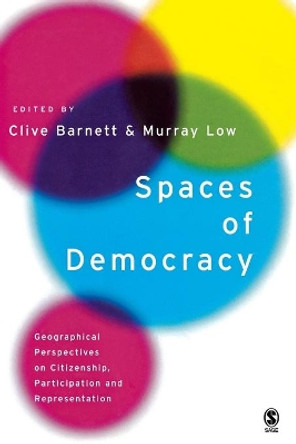Description
Evidence from 24 countries shows that political attitudes and participation levels are unaffected by relative wealth.
About the Author
Anirudh Krishna (Ph.D. in government, Cornell, 2000; master's in economics, Delhi, 1980) is Associate Professor of Public Policy and Political Science at Duke University. His research investigates how poor communities and individuals in developing countries cope with the structural and personal constraints that result in poverty and powerlessness. Previous books include Active Social Capital: Tracing the Roots of Development and Democracy (2002); Changing Policy and Practice from Below: Community Experiences in Poverty Reduction (2000); Reasons for Success: Learning from Instructive Experiences in Rural Development (1998); and Reasons for Hope: Instructive Experiences in Rural Development (1997). His articles have appeared in a variety of journals, winning the American Political Science Association's prize for best article on comparative democratization in 2002 and the Dudley Seers Memorial Prize in 2005.
Reviews
'A significant and invigorating advance in our understanding of democracy's likely future in the developing world, with clear policy implications about how to support fragile democracies more effectively.' Thomas Carothers, Carnegie Endowment for International Peace
'This is a theoretically and politically important book, based on an impressive set of empirical evidence provided by leading survey researchers. The book subjects generalizations about differences between rich and poor people based on findings of studies of American political behavior to tests with data from more than 35,000 interviews in 24 countries in Africa, Asia, and Latin America. The test results prove these generalizations wrong; poor people in the developing world are not less supportive of democracy and less involved in democratic politics than their more affluent fellow citizens. Education is the crucial variable, and the spread of education to rural areas and poorer sectors of the population has considerably widened the support base for democracy. The authors are fully aware of potential problems with the depth of this support and with the institutional safeguards for the exercise of democratic rights by the poor, but they rightfully insist that observers and practitioners alike have to take seriously the overwhelming evidence of support for democracy among the world's poor.' Evelyn Huber, University of North Carolina, Chapel Hill
'This book offers an authoritative challenge to the prevailing belief that in the developing world, prosperous groups provide democracy with the greatest, most committed support. It is anchored in solid empirical evidence - which, unusually, comes from diverse regions of the world. Those concerned with democratic theory and development will find it impossible to ignore.' James Manor, University of London
'This important collection of papers on the political attitudes of the poor in the developing world significantly recasts the debate on the contemporary relationship between poverty and democracy. Not only does it offer powerful new empirical evidence from Africa, Latin America and South Asia to reject the conventional wisdoms of modernization theory that the poor do not make good democrats, the book's analysis of the data, attention to nuances and probing questions will fundamentally change how scholars think about these issues.' Nicolas Van de Walle, Cornell University
Book Information
ISBN 9780521729604
Author Anirudh Krishna
Format Paperback
Page Count 208
Imprint Cambridge University Press
Publisher Cambridge University Press
Weight(grams) 340g
Dimensions(mm) 228mm * 153mm * 14mm







